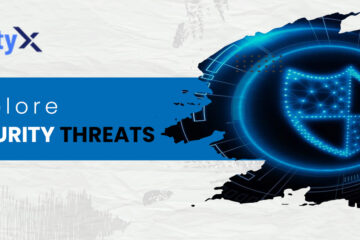LET’S DIG DEEP INTO THE DEEP WEB SEARCH ENGINES
The dark web is a part of the internet that isn’t indexed by search engines but it is indexed on deep web search engines. Dark Web is where you can operate without been tracked, maintaining total anonymity. The Dark Web is much smaller than the Deep Web and is made up of all different kinds of websites that sell drugs, weapons and even hire assassins.
You’ve no doubt heard talk of the ‘dark web’ as a hotbed of criminal activity and it is. Researchers Daniel Moore and Thomas Rid of King’s College in London classified the contents of 2,723 live dark web sites over a five-week period in 2015 and found that 57% host illicit material.
According a source some veteran dive deep into the dark web profits which shows that things have become worse. The number of dark web listings that could harm an enterprise has risen by 20% since 2016. Of all listings (excluding those selling drugs), 60% could potentially harm enterprises.
You can buy credit card numbers, all manner of drugs, guns, counterfeit money, stolen subscription credentials, hacked Netflix accounts and software that helps you break into other people’s computers. Buy login credentials to a $50,000 Bank of America account for $500. Get $3,000 in counterfeit $20 bills for $600. Buy seven prepaid debit cards, each with a $2,500 balance, for $500 (express shipping included). A ‘lifetime’ Netflix premium account goes for $6. You can hire hackers to attack computers for you. You can buy usernames and passwords. But not everything is illegal, the dark web also has a legitimate side. For example, you can join a chess club or BlackBook, a social network described as the ‘the Facebook of Tor.’
WHY TOR IS CONSIDERED IMPORTANT IN THE DEEP WEB SEARCH ENGINES?
It is worth noting that mere access via TOR is not considered as an illegal practice but can arouse suspicion with the law. TOR has long been used by Journalists, Researchers, or Thrill seekers in heavily censored countries in order to hide their web browsing habits and physical location, crawl the Deep Web and exchange information anonymously.
However, one of the main reasons behind the rise of TOR is NSA’s Surveillance Programs. After the Assange-Snowden revelations in the past years, public fears about their privacy getting compromised over the Internet.
NEW KICKASS TORRENTS (KAT), BEST TORRENT SITES AND EVERYTHING YOU NEED TO KNOW!
The reliability of the Internet had been lost that demanded the Ciphers come into action to thwart the Federal Agency’s efforts. So comes the need of TOR. With the help of TOR, the web users could roam around the Internet beyond any fear, keeping themselves and their real identities hidden from federal and intelligent agencies. This is why TOR is being one of the favorite targets of federal agencies.
DEEP WEB VS. DARK WEB: WHAT’S THE DIFFERENCE?
The terms ‘deep web’ and ‘dark web’ are sometimes used interchangeably, but they are not the same. Deep web refers to anything on the internet that is not indexed by and, therefore, accessible via a search engine like Google. Deep web content includes anything behind a paywall or requires sign-in credentials. It also includes any content that its owners have blocked web crawlers from indexing.
Medical records, fee-based content, membership websites, and confidential corporate web pages are just a few examples of what makes up the deep web. Estimates place the size of the deep web at between 96% and 99% of the internet. Only a tiny portion of the internet is accessible through a standard web browser that is generally known as the ‘clear web’.
The dark web is a subset of the deep web that is intentionally hidden, requiring a specific browser Tor to access, as explained below. No one really knows the size of the dark web, but most estimates put it at around 5% of the total internet. Again, not all the dark web is used for illicit purposes despite its ominous-sounding name.
WHAT IS MAPS GALAXY VIRUS, TOOLBAR AND ALL?
DARK WEB TOOLS AND SERVICES THAT PRESENT ENTERPRISE RISK
The Into the Web of Profit report identified 12 categories of tools or services that could present a risk in the form of a network breach or data compromise:
- Infection or attacks, including malware, distributed denial of service (DDoS) and botnets
- Access, including remote access Trojans (RATs), keyloggers and exploits
- Espionage, including services, customization and targeting
- Support services such as tutorials
- Credentials
- Phishing
- Refunds
- Customer data
- Operational data
- Financial data
- Intellectual property/trade secrets
- Other emerging threats
The report also outlined three risk variables for each category:
- Devaluing the enterprise, which could include undermining brand trust, reputational damage or losing ground to a competitor
- Disrupting the enterprise, which could include DDoS attacks or other malware that affects business operations
- Defrauding the enterprise, which could include IP theft or espionage that impairs a company’s ability to compete or causes a direct financial loss
HOW TO GET RID OF VOLSTERAN SEARCH?
DARK WEB BROWSER
All this activity, this vision of a bustling marketplace, might make you think that navigating the dark web is easy. It isn’t. The place is as messy and chaotic as you would expect when everyone is anonymous, and a substantial minority are out to scam others.
Accessing the dark web requires the use of an anonymizing browser called Tor. The Tor browser routes your web page requests through a series of proxy servers operated by thousands of volunteers around the globe, rendering your IP address unidentifiable and untraceable. Tor works like magic, but the result is an experience that’s like the dark web itself: unpredictable, unreliable and maddeningly slow.
Still, for those willing to put up with the inconvenience, the dark web provides a memorable glimpse at the seamy underbelly of the human experience without the risk of skulking around in a dark alley.
DARK WEB SITES
Dark web sites look pretty much like any other site, but there are important differences. One is the naming structure. Instead of ending in .com or .co, dark web sites end in .onion. That’s ‘a special-use top level domain suffix designating an anonymous hidden service reachable via the Tor network,’ according to Wikipedia. Browsers with the appropriate proxy can reach these sites, but others can’t.
Looking for web application security services? See how can we help you out with our web application security services.
DARK WEB SEARCH ENGINE
Dark web search engines exist, but even the best are challenged to keep up with the constantly shifting landscape. The experience is reminiscent of searching the web in the late 1990s. Even one of the best search engines, called Grams, returns results that are repetitive and often irrelevant to the query. Link lists like The Hidden Wiki are another option, but even indices also return a frustrating number of timed-out connections and 404 errors.
8 BEST DARK AND DEEP WEB HIDDEN SEARCH ENGINES OF 2020
Below mentioned are the 8 best dark and deep web search engines of 2020.
-
AHMIA
Ahmia is one of the very few deep web search engines that actually work and get us results like a traditional search engine. It has a simple user interface with a few instructions and a search bar on the homepage. Simply entering our queries will give us the results.
As you know what you’re searching for, it totally can be one of the best dark web search engines bringing out even the darkest of the results. Some of its advanced features that no other onion search engine has provided so far ‘Link Graph’ shows us the connections from one link to another, it’s useless for most users, but it’s unique!
Get your first Penetration Testing for FREE with secuirtyx.ca
-
TORCH
Torch is one of the most popular and most applauded deep web search engines in existence. The sheer fact that the search engine has been live since 1996 establishes its potential, the dark forces of the internet do not let anything live anything this long without quality.
It’s also extremely simple, there’s the logo, and the search bar. Although yes, it does display ads even though they’re not based on your cookies or caches, and are rather static ads which are the same for everyone. It also claims to have over 1million pages indexed in its database, which I suppose is enough for most of us.
-
KILOS
Kilos breaks the deep web search engine barriers and ventures into the Darker Side of the deep web. In other words, it’s a Dark web search engine and almost every result that you see is illegal. As the name hints, it’s a search-engine focused towards ‘Drugs
The search-engine takes your keyword and filters and searches through all its 8 indexed Darknet Markets, 556,728+ forum posts, 764,555 reviews, and 3,012 indexed vendors. In most cases, you’d find someone who’s willing to sell you drugs based on your preferences.
25 COMMON CYBER SECURITY WORDS THAT YOU NEED TO KNOW
-
NOT EVIL
Not Evil is another one of the deep web search engines which actually is a search engine and not just a webpage like The Hidden Wiki. It has an extremely simplistic interface with nothing but a sarcastic image on the homepage, and a search bar at the top.
You enter the keywords of what you’re looking for on the search bar and hit enter, the page comes back with the relevant results, even though the results page is quite cluttered and the font isn’t very exciting, the links still work.
For advanced searches, it also includes data such as the last response of the site along with ping time, and additional results along with the primary search result.
-
CANDLE
You may notice a slight similarity between Candle and Google, the logo and the user-interface that is; although I assure you it’s nothing like Google.
It’s one of the simplest deep web search engines that exist, and because it’s similar to Google on its interface, you won’t find using it hard either. It displays only .onion results and not clearnets and can be used to directly find deep web links if you know the keywords you’re searching for.
-
HAYSTAK
With over 1.5Billion indexed webpages, and nearly 300,000 individual searches performed each day, Haystak is arguably one of the best onion search engines in the industry.
It lists only onion URLs, although what makes it truly special is that it shows not just website links, but additional advanced information as well, which include Historical version, cached version, Datapoints, etc.
Although those advanced features we just talked about are included in the ‘premium’ version of the Search engine and not free; the free version only functions as a general search engine with .onion sites. There may be occasional ads, although most of the time, it’s an ad-free platform.
EVERYTHING YOU NEED TO KNOW ABOUT THE CIA TRIAD
-
ABIKO
Abiko is one of the simplest deep web search engines, simplest in the sense that it includes absolutely nothing except a search box and search results, which include only .onion websites, no additional clutter.
The interface is as simple as it can be, and the search page resembles that of Google, although only slightly. Abiko, too is an ad-free search engine so you won’t need any ad-blockers, or have to worry about your screen getting spammed to death with the ads.
-
ONION LAND
OnionLand is well recognized, and is sponsored by Tor and Tor2Web themselves! The homepage is easy to understand, with a search box and a handful of popular search terms in case you’re not loaded with keywords on your end.
It does accept and let users display ads, although that’s occasional and most of the time it’s ad-free just like Duck Duck Go or the other engines listed above. It shows only .onion results.



0 Comments